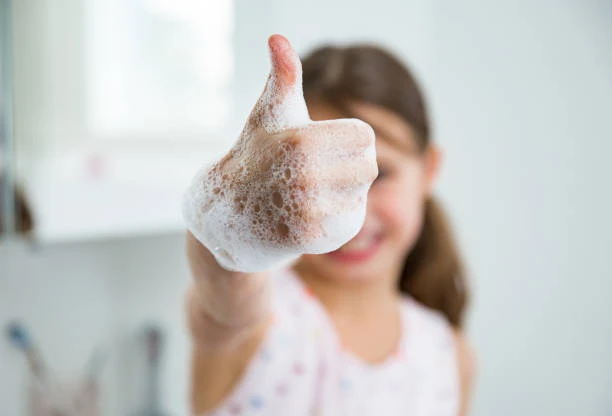Personal hygiene is the cornerstone of a healthy and fulfilling life. It encompasses a range of daily practices that contribute not only to physical well-being but also to one’s social and mental health.
In this comprehensive guide, we delve into the various facets of personal hygiene, exploring the importance of cleanliness and the positive impact it can have on our overall quality of life.
Importance of Personal Hygiene: Nurturing a Healthier You
Personal hygiene is not merely a set of routine practices; it is a powerful tool that shapes our health, well-being, and overall quality of life.
The significance of maintaining good personal hygiene extends far beyond the obvious benefits of cleanliness.
In this section, we will delve into the multifaceted importance of personal hygiene and its profound impact on various aspects of our lives.
1. Disease Prevention:
Practicing good personal hygiene is a formidable defense against a myriad of diseases. Regular handwashing, proper dental care, and cleanliness in daily habits significantly reduce the risk of infections and illnesses, promoting a robust immune system.
2. Social Interactions:
A well-groomed and clean appearance not only enhances personal confidence but also plays a pivotal role in social interactions.
Maintaining personal hygiene cultivates a positive image, fostering smoother relationships and boosting self-esteem.
3. Mental Well-being:
The connection between personal hygiene and mental health is undeniable. Engaging in regular hygiene practices contributes to a sense of self-care, reducing stress and anxiety.
The routine of personal cleanliness can be a therapeutic anchor in our daily lives.
4. Professional Success:
The impact of personal hygiene is not confined to personal life; it spills over into the professional realm. Cleanliness and good grooming are often associated with professionalism, making a positive impression in the workplace, and enhancing career prospects.
5. Prevention of Body Odor:
Basic hygiene practices such as regular bathing and proper use of deodorants contribute to the prevention of body odor. This not only promotes personal comfort but also plays a crucial role in social interactions.
6. Confidence and Self-esteem:
Feeling clean and well-groomed has a direct correlation with confidence and self-esteem. Individuals who prioritize personal hygiene tend to exude a sense of self-assurance in various aspects of life.
7. Overall Well-being:
Personal hygiene is a holistic approach to well-being. It is not just about cleanliness; it’s about nurturing a healthy lifestyle.
A combination of proper nutrition, exercise, and hygiene practices contributes to a well-rounded and fulfilling life.
In essence, the importance of personal hygiene lies in its ability to safeguard our health, enhance our social interactions, and contribute to a positive self-image.
As we embrace the significance of cleanliness in our daily lives, we pave the way for a healthier, more confident, and happier version of ourselves.
Basic Personal Hygiene Practices: Foundation for Health and Well-being
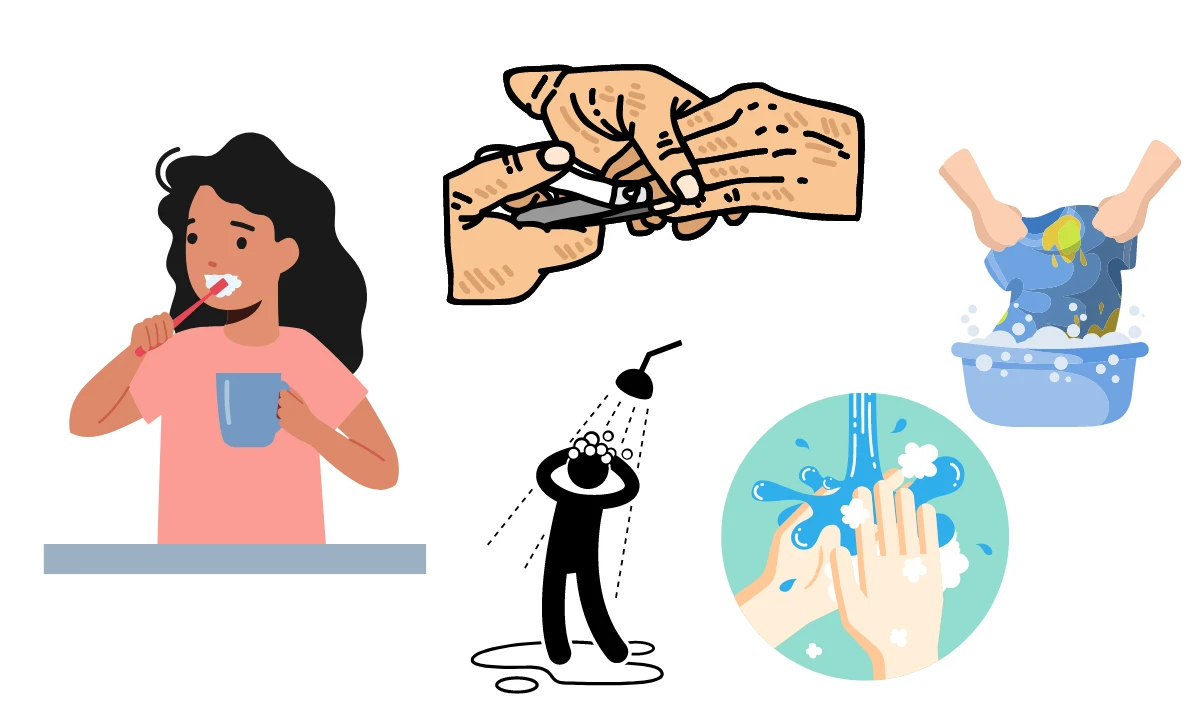
In the pursuit of a healthy lifestyle, basic personal hygiene practices stand as the bedrock of overall well-being.
These fundamental habits, ingrained in our daily routines, play a crucial role in preventing illness, promoting cleanliness, and fostering a positive self-image.
In this section, we will explore the essential elements of basic personal hygiene and their impact on our health.
1. Handwashing:
Handwashing with soap and water is a powerful defense against infections. Wash before meals, after using the restroom, and in public spaces.
2. Dental Care:
Maintaining good oral hygiene is crucial for overall health. Regular brushing, flossing, and dental check-ups not only preserve the health of teeth and gums but also contribute to fresh breath and prevent potential systemic health issues.
3. Bathing and Showering:
Regular bathing or showering is essential to remove accumulated dirt, sweat, and bacteria from the skin. It not only promotes cleanliness but also helps prevent skin infections and unpleasant body odors.
4. Grooming Practices:
Grooming habits, including regular haircuts, nail trimming, and facial hair maintenance, contribute to a well-kept appearance.
These practices not only enhance personal hygiene but also play a role in boosting self-esteem and confidence.
5. Clothing Hygiene:
Wearing clean clothes is a fundamental aspect of personal hygiene. Regular laundering of clothes helps eliminate germs and odors, ensuring a fresh and hygienic wardrobe.
6. Proper Waste Disposal:
Disposing of waste, including tissues, sanitary products, and other personal items, in a proper and timely manner is crucial for maintaining cleanliness in personal spaces and preventing the spread of germs.
7. Nail Care:
Trimmed and clean nails contribute to overall hygiene. Proper nail care helps prevent the accumulation of dirt and bacteria under the nails, reducing the risk of infections.
8. Hygiene During Illness:
When ill, cover your mouth and nose when coughing or sneezing, and use tissues. It helps with recovery and prevents the illness from spreading.
Incorporating these basic personal hygiene practices into our daily lives forms the foundation for a healthier and more confident self.
By cultivating these habits, we not only protect ourselves from potential health hazards but also contribute to a cleaner and safer environment for those around us.
Diet and Personal Hygiene: The Nutritional Path to Cleanliness and Health

The connection between diet and personal hygiene is often overlooked, yet it plays a vital role in maintaining overall health and cleanliness.
What we consume directly impacts our body’s functioning, including aspects related to hygiene, such as skin health, body odor, and oral cleanliness.
In this section, we will explore how a balanced diet contributes to personal hygiene and overall well-being.
1. Hydration and Skin Health:
Adequate hydration is crucial for maintaining healthy skin. Water helps detoxify the body and keep the skin moisturized, reducing the likelihood of skin problems and enhancing the skin’s natural glow.
2. Nutrient-Rich Diet for Healthy Skin:
Eating fruits, veggies, nuts, and fish is crucial for healthy skin, elasticity, and acne prevention. They’re rich in nutrients like vitamins, minerals, antioxidants, omega-3, and fiber.
3. Impact on Body Odor:
Certain foods and spices, such as garlic, onions, and some strong spices, can influence body odor. While these foods have health benefits, being mindful of their consumption, especially in social settings, can help manage body odor.
4. Oral Health and Diet:
Sugary and acidic foods cause dental issues. A balanced diet, less sugar, and regular brushing and flossing prevent them.
5. Foods That Promote Hygiene:
Some foods have natural antibacterial properties, such as yogurt, which contains probiotics that support gut health and indirectly enhance overall cleanliness and immunity.
6. Diet and Digestive Health:
A high-fiber diet, obtained from fruits, veggies, and whole grains, is vital for maintaining a healthy digestive system. This system is essential for removing toxins and ensuring overall cleanliness.
7. Avoiding Processed Foods:
Reducing the consumption of processed foods, which are typically high in unhealthy fats and additives, can enhance overall health and minimize the risk of diseases that can indirectly impact hygiene practices.
8. Balanced Diet for Immune Support:
A balanced diet is crucial to boost the immune system, which fights against infections and illnesses, ultimately reducing the negative impact on personal hygiene.
A healthy lifestyle requires us to connect our diet with personal hygiene. By eating a balanced diet, staying hydrated, and being mindful of the impact of certain foods on our bodies, we can enhance our overall well-being.
Oral Hygiene: The Key to a Healthy Smile and Overall Well-being
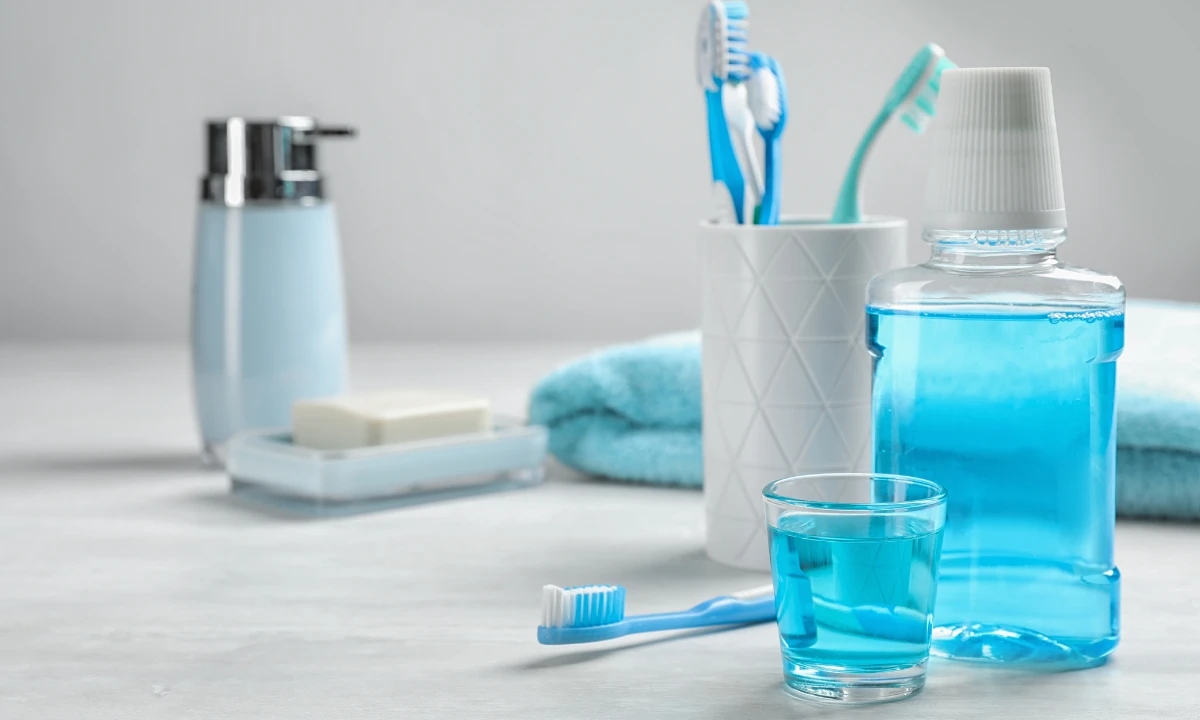
Oral hygiene is a critical component of personal health, playing a significant role not only in dental health but also in overall physical well-being.
Proper oral care prevents a variety of dental and medical problems, including gum disease, tooth decay, and even heart-related issues.
In this section, we will delve into the essential practices of oral hygiene and their far-reaching benefits.
1. Brushing Teeth:
Brushing teeth at least twice a day is fundamental for removing plaque and preventing tooth decay and gum disease.
Using fluoride toothpaste and a toothbrush to suit one’s dental needs is essential for effective brushing.
2. Flossing:
Flossing daily is crucial for removing food particles and plaque from the areas between teeth where toothbrushes can’t reach.
It helps prevent gum disease and tooth decay, making it vital for overall oral health.
3. Regular Dental Check-ups:
Visiting a dentist regularly, usually every six months, is key to maintaining oral hygiene. These check-ups allow for professional cleaning and early detection of any dental problems.
4. Mouthwash:
Using mouthwash can help reduce oral bacteria, freshen your breath, and provide extra protection against tooth decay and gum disease, making it a great complement to brushing and flossing.
5. Diet and Oral Health:
Avoiding sugary and acidic foods can lower the risk of tooth decay and enamel erosion. Maintaining oral health can be achieved by consuming water, dairy products, and crunchy fruits and vegetables.
6. Avoiding Tobacco:
Avoiding tobacco products is crucial for oral health. Tobacco increases the risk of gum disease, tooth loss, and oral cancer and can lead to bad breath and stained teeth.
7. Managing Dry Mouth:
Saliva plays an essential role in oral hygiene by neutralizing acids and washing away food particles. Addressing dry mouth through hydration and possibly consulting a healthcare professional can help maintain oral health.
8. Changing Toothbrushes Regularly:
Replacing toothbrushes or toothbrush heads every three to four months, or sooner if bristles are frayed, ensures effective cleaning and maintains oral hygiene.
By adhering to these oral hygiene practices, individuals can ensure the health of their teeth and gums, contributing to their overall health and confidence.
A healthy mouth is not only essential for a beautiful smile but also for the prevention of more serious health issues, highlighting the importance of regular and thorough oral care.
Body Odor and Deodorant Use: Tackling a Common Hygiene Challenge
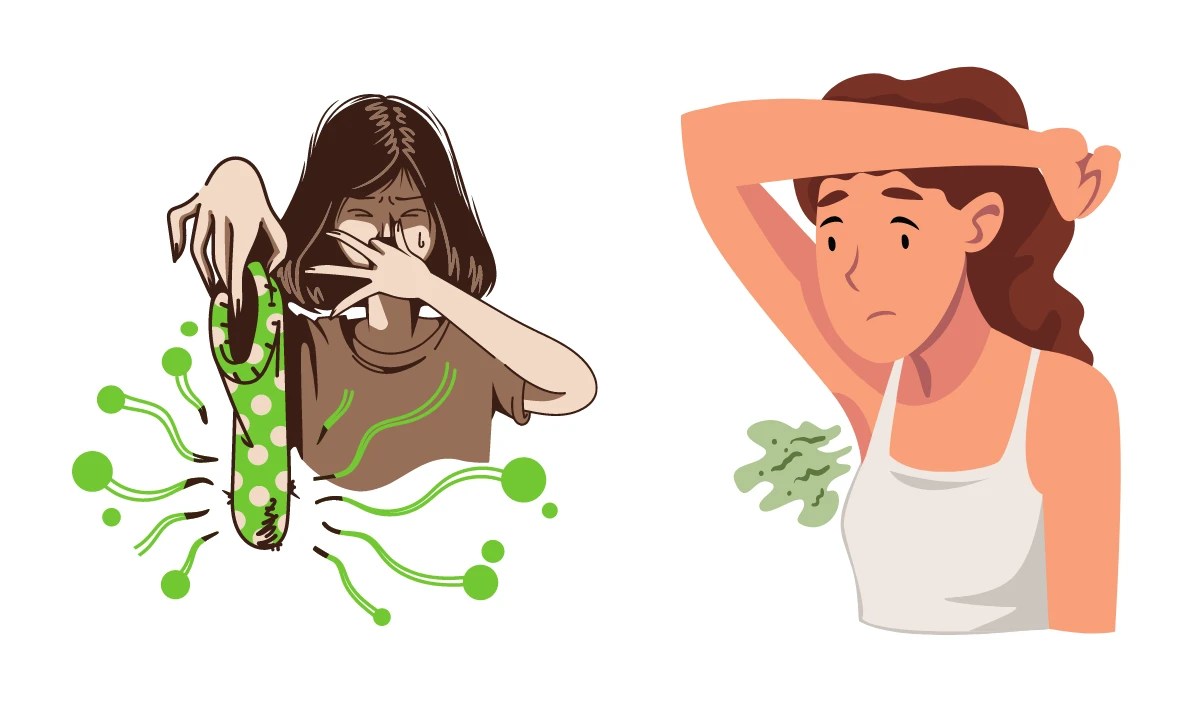
Body odor is a natural phenomenon, often perceived as an uncomfortable or embarrassing hygiene issue. It is primarily caused by the interaction of sweat with bacteria on the skin.
While sweat itself is odorless, bacteria break it down into acidic compounds that produce the familiar unpleasant odor.
Deodorants and antiperspirants play a significant role in managing body odor, improving personal comfort, and boosting confidence.
This section explores the causes of body odor and effective strategies for its management, including the use of deodorants.
1. Understanding Body Odor:
Body odor is most commonly associated with the armpits, but it can also occur in other areas like the feet and groin. These areas have a higher concentration of sweat glands and are more prone to bacterial growth.
2. Hygiene Practices:
Regular bathing or showering with soap helps remove sweat and bacteria from the skin, reducing body odor. Focusing on problem areas, such as the underarms and feet, is particularly important.
3. Use of Deodorants:
Deodorants mask body odor and may contain antimicrobial agents. They don’t prevent sweating but control sweat odor.
4. Use of Antiperspirants:
Antiperspirants contain active ingredients like aluminum-based compounds that temporarily block sweat pores, reducing the amount of perspiration. By reducing sweat, they indirectly help control body odor.
5. Clothing Choices:
Wearing natural fabrics like cotton, linen, or wool can help as they allow the skin to breathe, reducing sweat accumulation. Synthetic fabrics, on the other hand, may contribute to increased body odor.
6. Diet and Body Odor:
Certain foods and spices can affect body odor. For example, foods with strong smells, like garlic and onions, can contribute to body odor when metabolized.
7. Managing Foot Odor:
Foot odor can be managed by maintaining good foot hygiene, changing socks daily, and choosing breathable footwear. Using foot powders or specialized foot deodorants can also be beneficial.
8. Medical Considerations:
In some cases, excessive body odor may be a sign of a medical condition, such as hyperhidrosis (excessive sweating) or hormonal imbalances. Consulting a healthcare professional is advised if body odor is unusually strong or persistent.
By understanding the causes of body odor and employing strategies such as regular hygiene practices, the use of deodorants or antiperspirants, and appropriate clothing choices, individuals can effectively manage body odor.
This not only contributes to personal comfort and hygiene but also enhances social confidence and interactions.
Hair and Scalp Care: Essential Tips for Healthy Hair
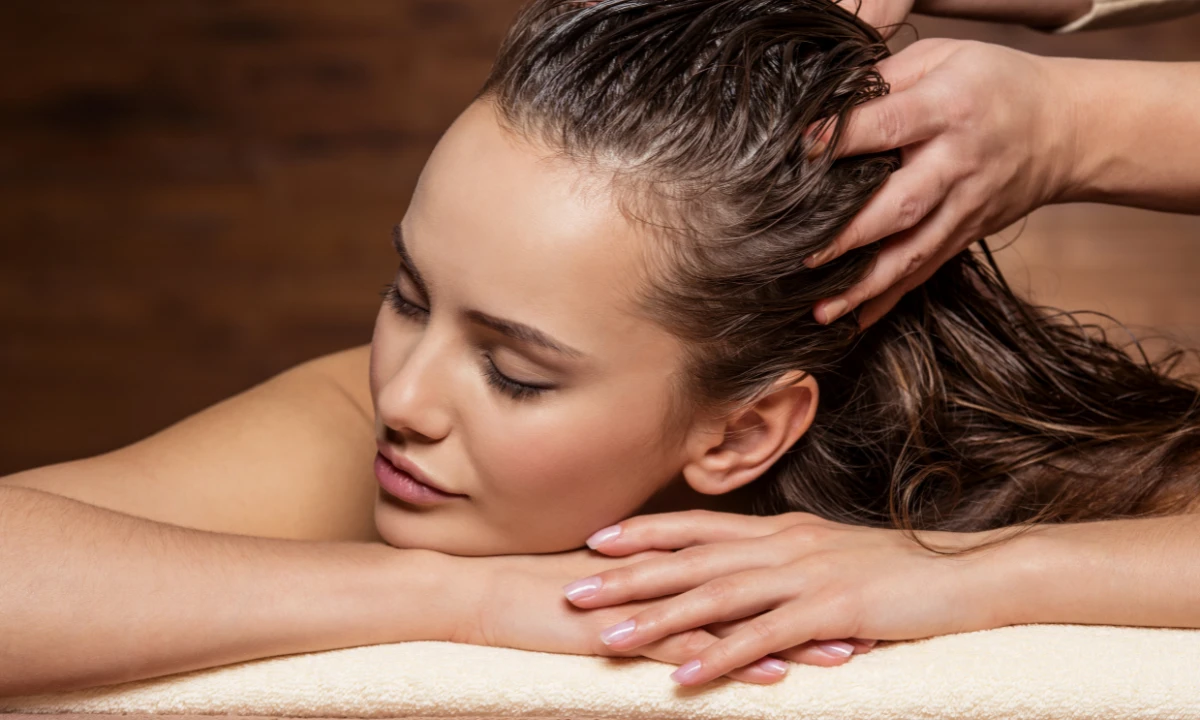
Hair and scalp care is an important aspect of personal hygiene and overall appearance. The health of your hair and scalp can significantly impact how you feel about your appearance and can also be an indicator of your general health.
Proper hair and scalp care involves a combination of good hygiene practices, appropriate products, and a healthy lifestyle. In this, we’ll explore key strategies for maintaining healthy hair and a healthy scalp.
1. Regular Washing:
Washing hair regularly helps remove dirt, oil, and product buildup. The frequency of washing depends on hair type, lifestyle, and personal preference. Over-washing can strip natural oils, while under-washing can lead to buildup.
2. Choosing the Right Shampoo and Conditioner:
Selecting a shampoo and conditioner that suits your hair type is crucial. For example, moisturizing products for dry hair, volumizing for fine hair, or medicated shampoos for specific scalp conditions.
3. Gentle Washing Techniques:
When washing your hair, use your fingertips to gently massage your scalp. Avoid using hot water as it strips your hair of natural oils. Instead, opt for lukewarm water.
4. Avoiding Excessive Heat Styling:
Frequent use of heat styling tools (hairdryers, straighteners, curling irons) can damage hair. Minimize their use, apply heat protectant products, and use the lowest effective temperature setting.
5. Regular Trimming:
Regular trims help prevent split ends and keep hair looking healthy. Even if the hair is growing out, a slight trim every 6-8 weeks is beneficial.
6. Balanced Diet:
A diet rich in vitamins, minerals, and proteins supports hair health. Foods high in omega-3 fatty acids, biotin, and antioxidants can promote stronger, shinier hair.
7. Managing Scalp Health:
A healthy scalp is the foundation of healthy hair. Treat any scalp issues like dandruff, eczema, or psoriasis. If over-the-counter treatments don’t work, consult a dermatologist.
8. Avoiding Tight Hairstyles:
Tight hairstyles can put a strain on hair follicles, potentially leading to hair loss. Opt for looser styles to prevent unnecessary stress on your hair.
9. Protecting Hair from Environmental Factors:
Sun, wind, and chlorine can damage hair. Protect your hair with hats, scarves, or hair products with UV protection, and rinse your hair after swimming in chlorinated pools.
10. Hydration and Stress Management:
Staying hydrated and managing stress effectively can have positive effects on hair health. Stress can impact hair growth and quality, so engaging in stress-reduction activities is beneficial.
By following these hair and scalp care tips, you can promote healthier, stronger, and more lustrous hair. Remember that hair care routines might vary based on individual needs, so it’s important to find what works best for you.
Clothing and Personal Hygiene: Ensuring Cleanliness Through Proper Attire Management

Clothing plays a significant role in personal hygiene. Keeping clothes clean and changing them regularly helps to maintain overall cleanliness and prevent body odor, skin irritations, and infections.
This involves laundering clothes properly, choosing appropriate fabrics, and being mindful of how clothing interacts with the body’s natural processes, like sweating. Proper clothing hygiene is essential for good health and personal well-being.
Personal Hygiene for Children: Building Foundations for Lifelong Health
Personal hygiene for children is crucial for their health and development. It involves teaching kids about regular bathing, hand washing, oral care, and general cleanliness.
Establishing these habits early helps prevent illnesses and instills a sense of responsibility and self-care in children.
Effective personal hygiene education for kids is essential for their overall well-being and forms the foundation for healthy habits into adulthood.
Personal Hygiene and Disease Prevention: The Critical Link
Personal hygiene plays a pivotal role in preventing diseases. By maintaining cleanliness through regular washing, proper oral care, and good grooming practices, individuals can significantly reduce the risk of infections and illnesses.
Hygiene practices like hand washing are especially effective in preventing the spread of contagious diseases.
Maintaining personal hygiene is not only important for individual health but also for public health, as it helps control the transmission of infectious diseases within communities.
Thus, personal hygiene is a key factor in disease prevention and promoting overall health.
Conclusion: The Overall Impact of Personal Hygiene on Health and Society
The importance of personal hygiene extends far beyond mere cleanliness. It has profound implications for individual health, social interactions, and public health.
By adopting good hygiene practices, individuals can protect themselves from various infections and diseases, enhance their physical appearance and self-esteem, and contribute positively to their environment.
Good personal hygiene habits reduce the risk of skin, dental, and other health-related issues. They are crucial in preventing the spread of contagious diseases, thereby playing a significant role in public health and safety.
In a social context, maintaining personal hygiene is key to making positive impressions and fostering comfortable interactions with others.
Moreover, the practice of personal hygiene is not just an individual responsibility but a societal one. Educating the community’s role in health promotion can lead to a healthier, more aware, and responsible society.
The overall impact of personal hygiene is thus far-reaching, influencing personal well-being, social dynamics, and community health.
In conclusion, personal hygiene is a fundamental aspect of health and well-being. Its benefits extend from the personal level to the broader community, highlighting its role as an integral part of a healthy, functioning society.
FAQs
Q1: What is personal cleanliness?
A1: Personal cleanliness refers to the practice of keeping one’s body and personal environment clean to preserve health and well-being.
It involves habits and routines that reduce the risk of illness, infection, and unpleasant odors and includes bathing, washing hands, brushing teeth, and keeping clothing clean.
Q2: What are three examples of personal cleanliness practices?
A2: Three examples of personal cleanliness practices include:
- Regular bathing or showering.
- Frequent hand washing, especially before eating or after using the restroom.
- Brushing and flossing teeth daily.
Q3: What are the seven personal hygiene?
A3: The seven key aspects of personal hygiene typically include:
- Oral hygiene (teeth and mouth care).
- Body hygiene (bathing and showering).
- Hand hygiene (regular washing).
- Nail hygiene (keeping nails clean and trimmed).
- Hair hygiene (washing and grooming hair).
- Foot hygiene (cleaning feet and wearing clean socks).
- Genital and anal hygiene (keeping these areas clean).
Q4: What do you call personal cleanliness?
A4: Personal cleanliness is often referred to as personal hygiene. This term encompasses all practices and habits related to maintaining body’s the body’s cleanliness and health.
Q5: What is the difference between hygiene and cleanliness?
A5: Hygiene generally refers to practices and habits that prevent the spread of disease and maintain health, such as washing hands and brushing teeth.
Cleanliness, on the other hand, is more about the absence of dirt, dust, and bad odors. While hygiene is focused on health preservation, cleanliness is more about being tidy and clean in appearance.
Q6: What are ten good personal hygiene practices?
A6: Ten good personal hygiene practices include:
- Brushing teeth twice a day and flossing regularly.
- Bathing or showering daily.
- Regular hand washing.
- Keeping nails clean and trimmed.
- Washing hair regularly.
- Using deodorant or antiperspirant.
- Cleaning and changing clothes regularly.
- Keeping feet clean and dry.
- Maintaining genital and anal cleanliness.
- Covering mouth and nose when coughing or sneezing.
Q7: Is self-care a hygiene?
A7: Self-care can encompass hygiene, but it is a broader concept. Self-care includes any activity done deliberately to take care of mental, emotional, and physical health.
While personal hygiene is an essential aspect of physical self-care, self-care also involves activities like exercise, healthy eating, and stress management.
Q8: What is an example of cleanliness?
A8: An example of cleanliness is regularly cleaning one’s living space, such as vacuuming floors, dusting surfaces, and keeping the area free of clutter and trash. This contributes to a clean, healthy, and pleasant living environment.

